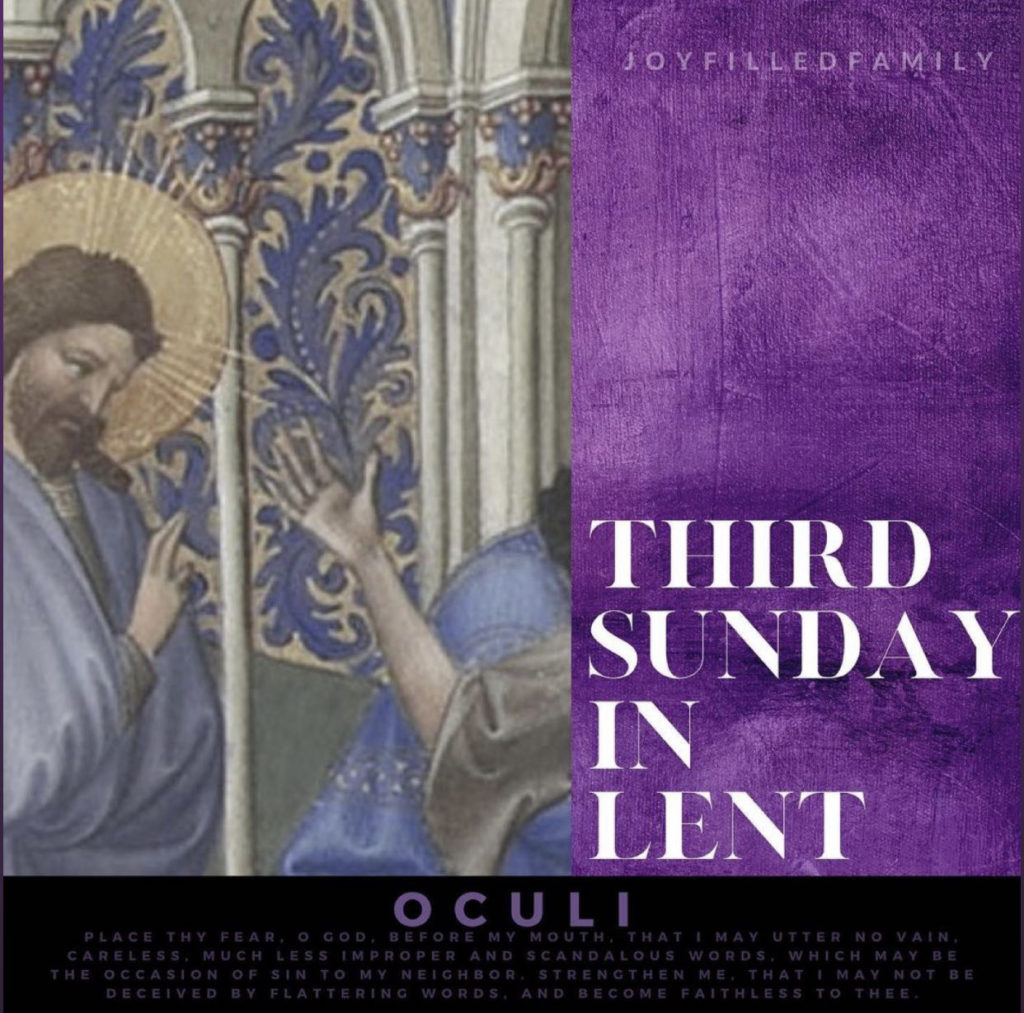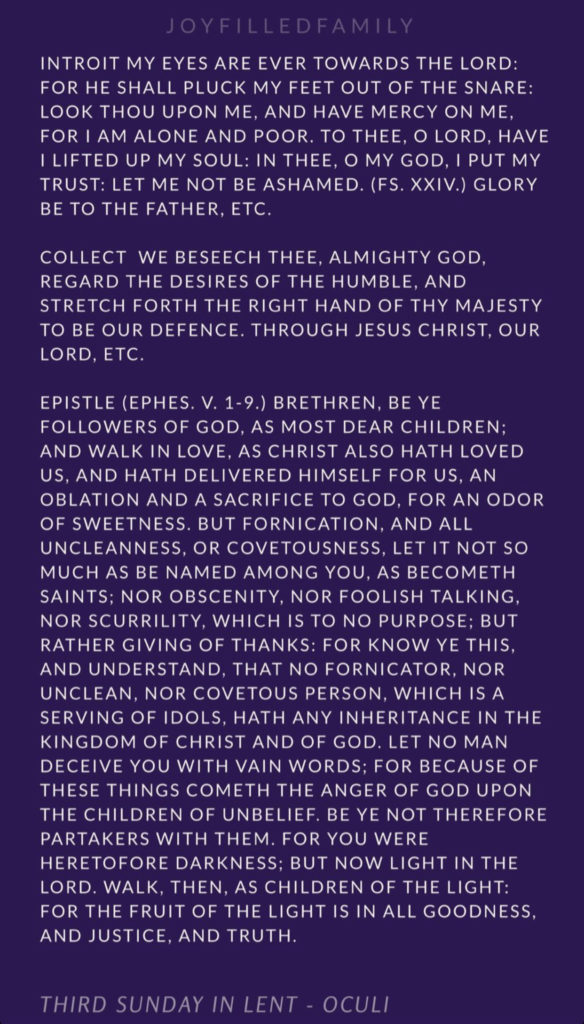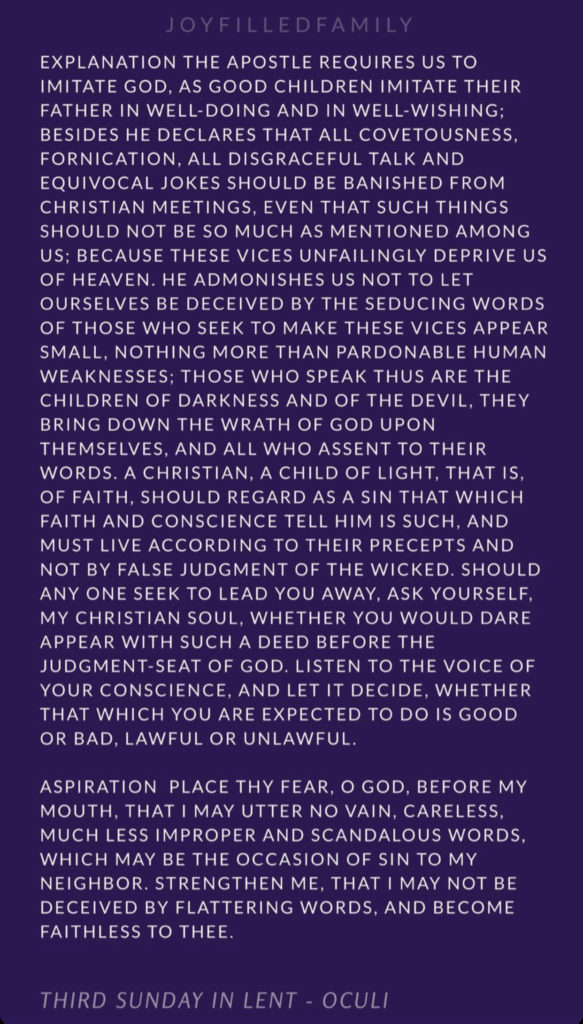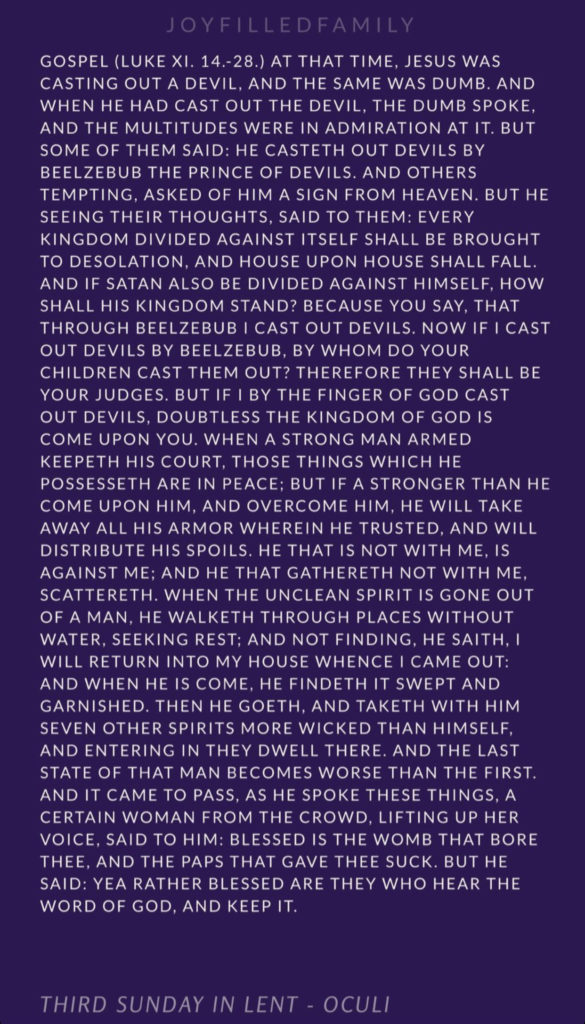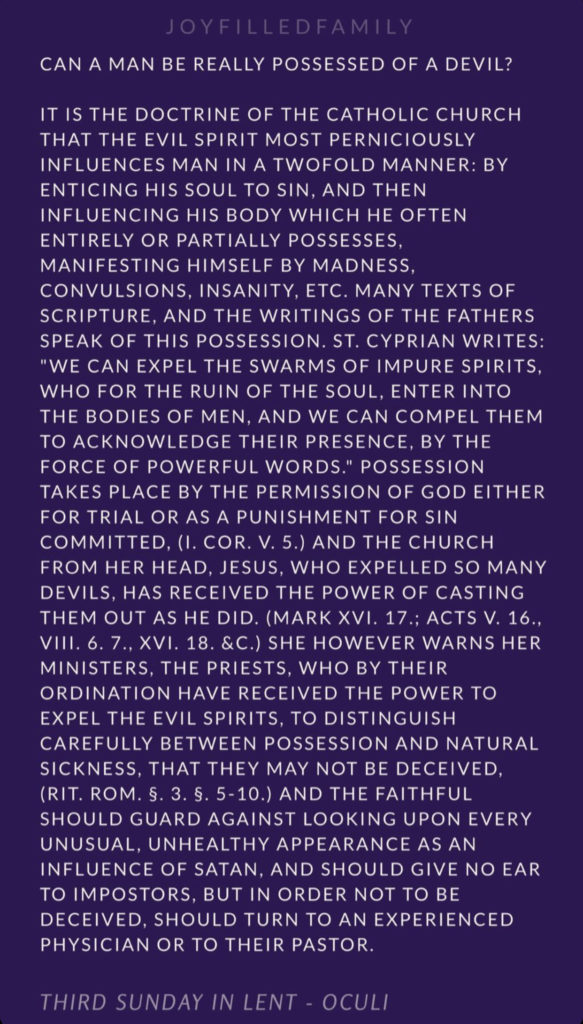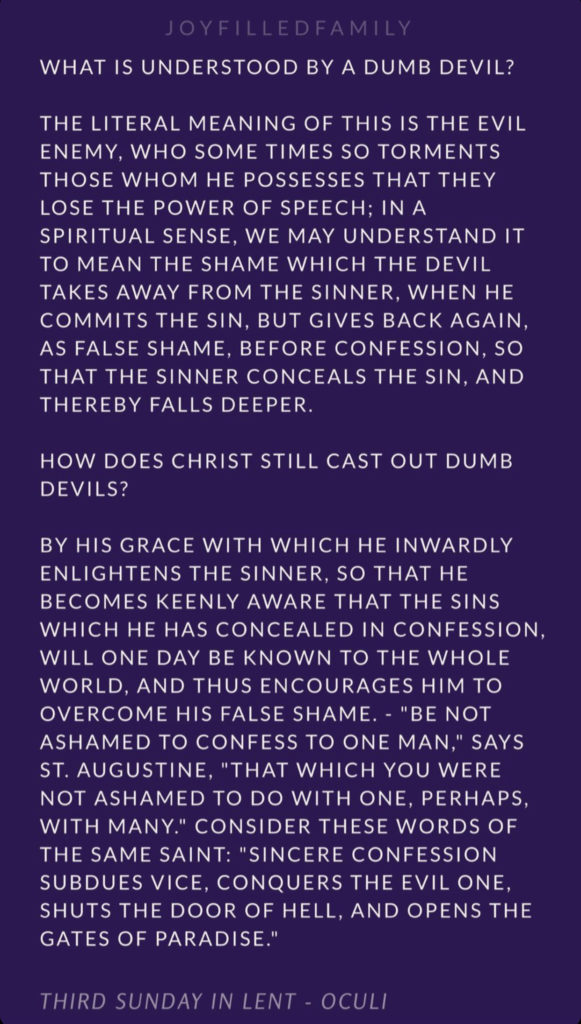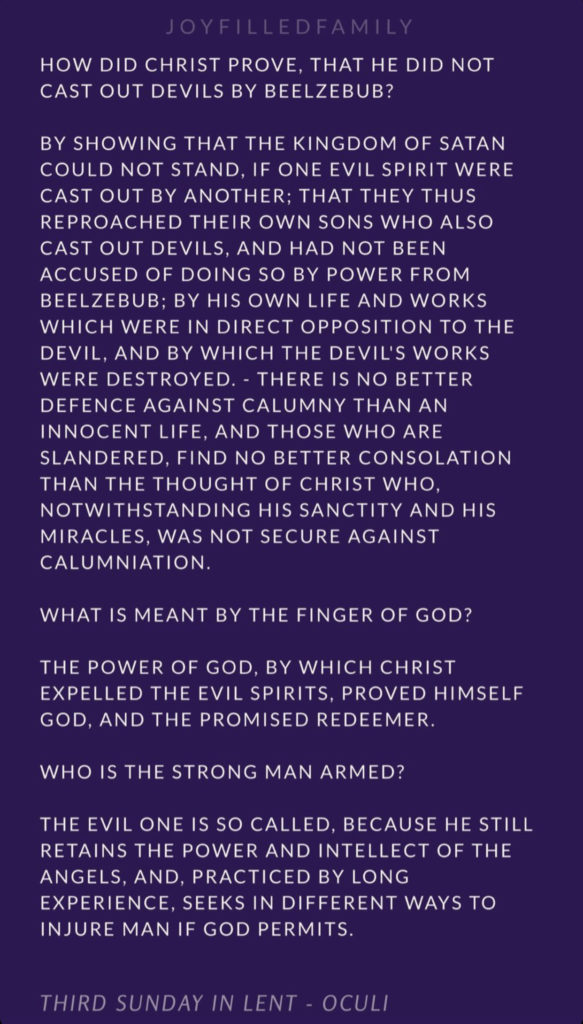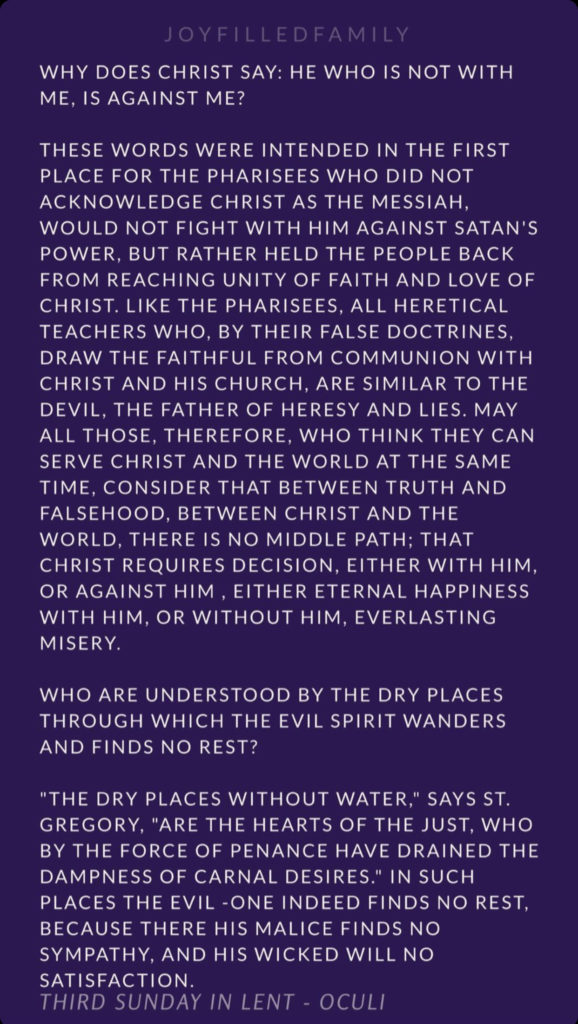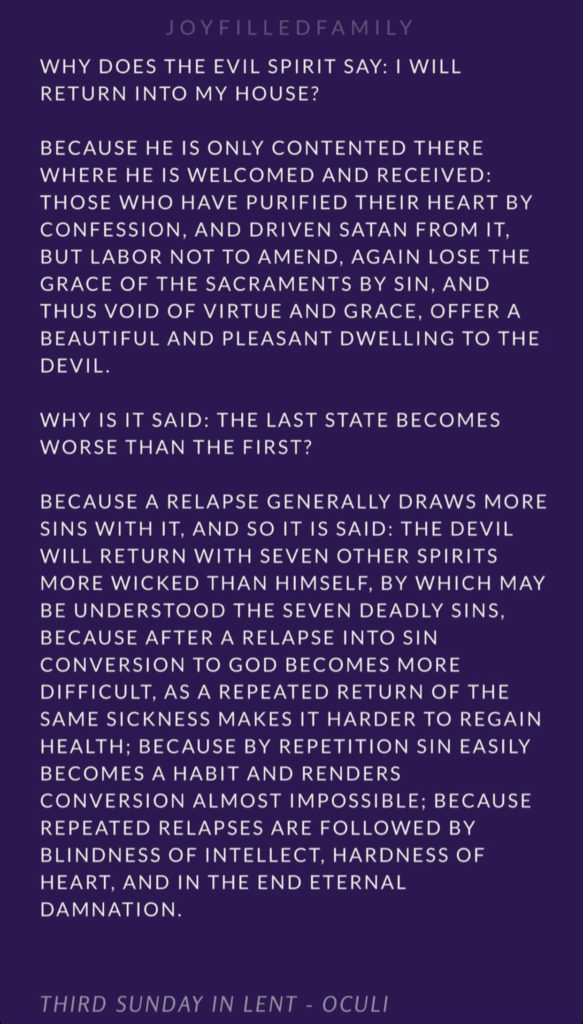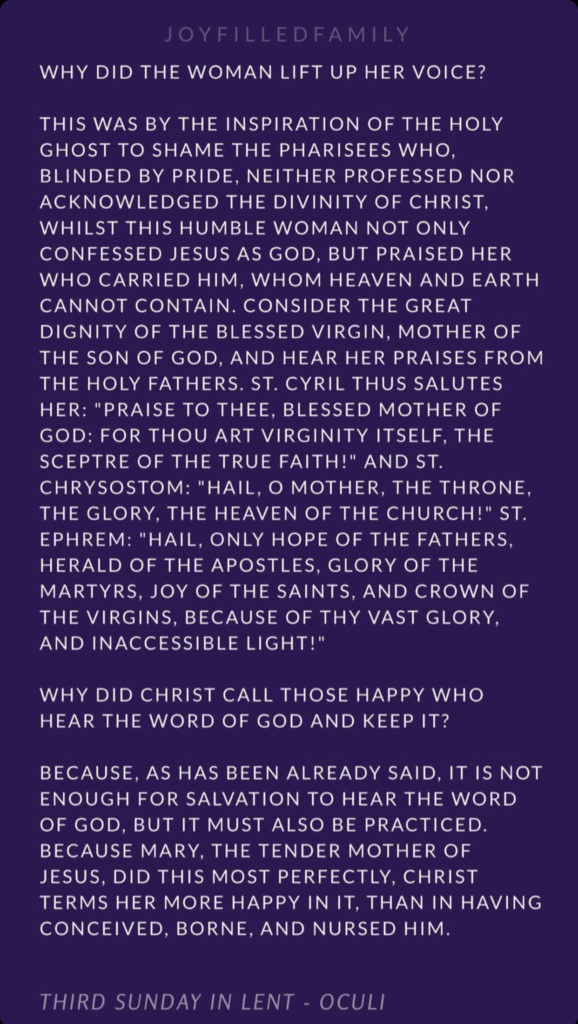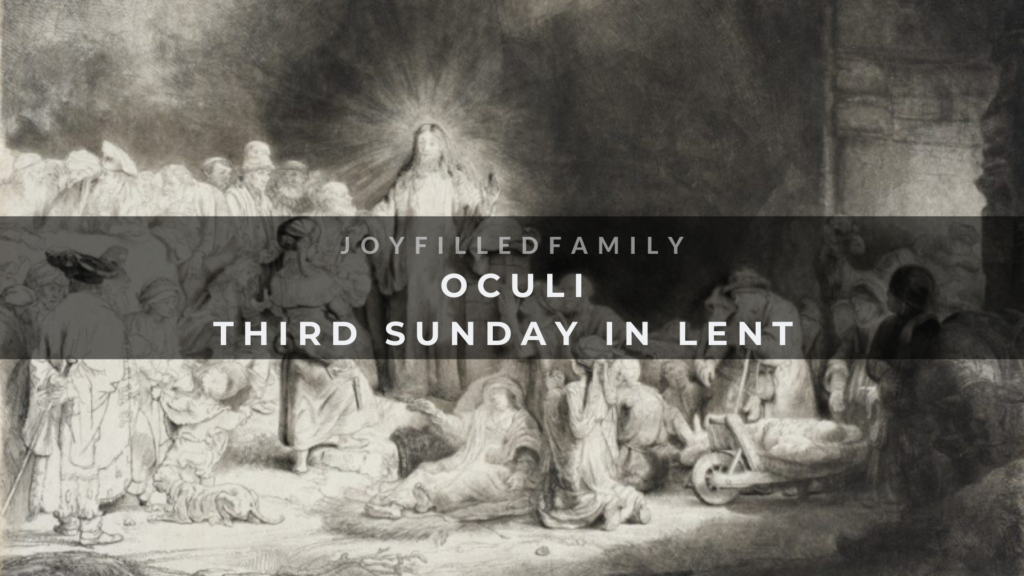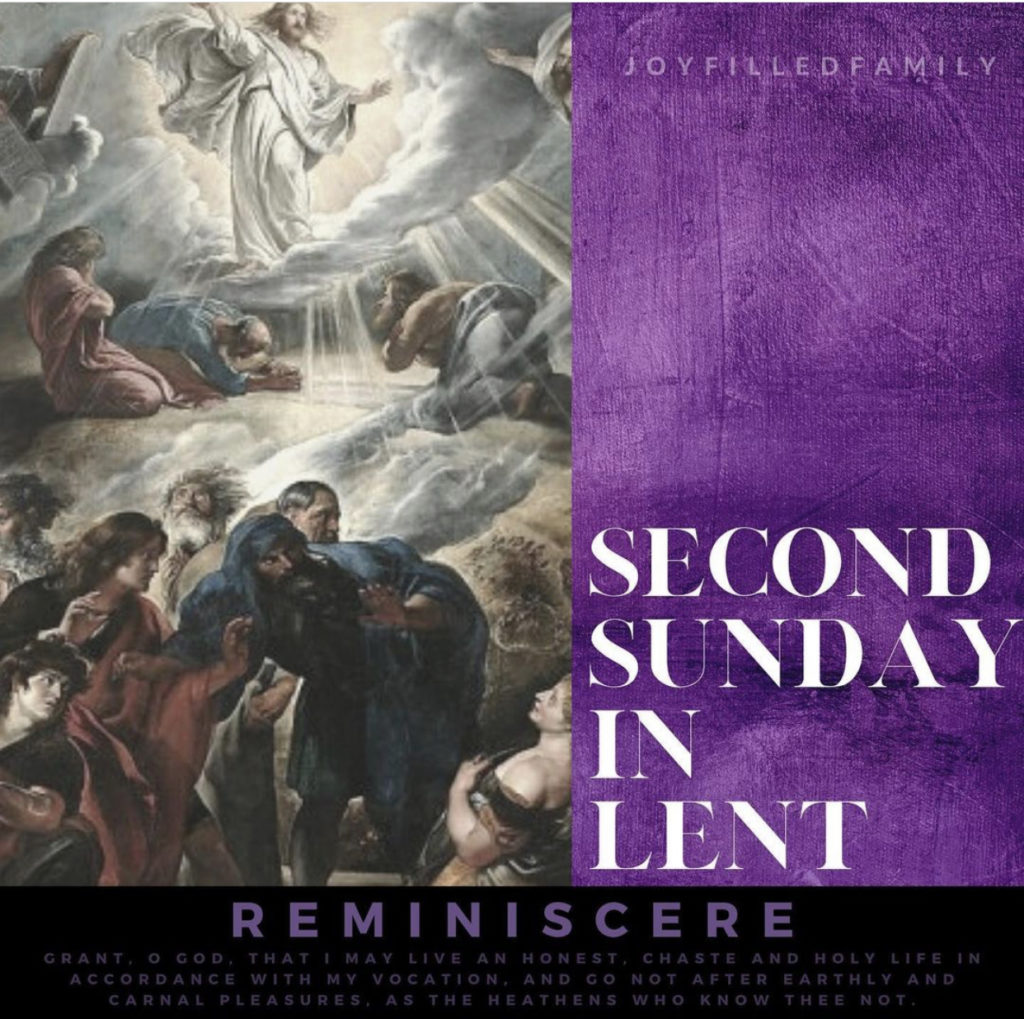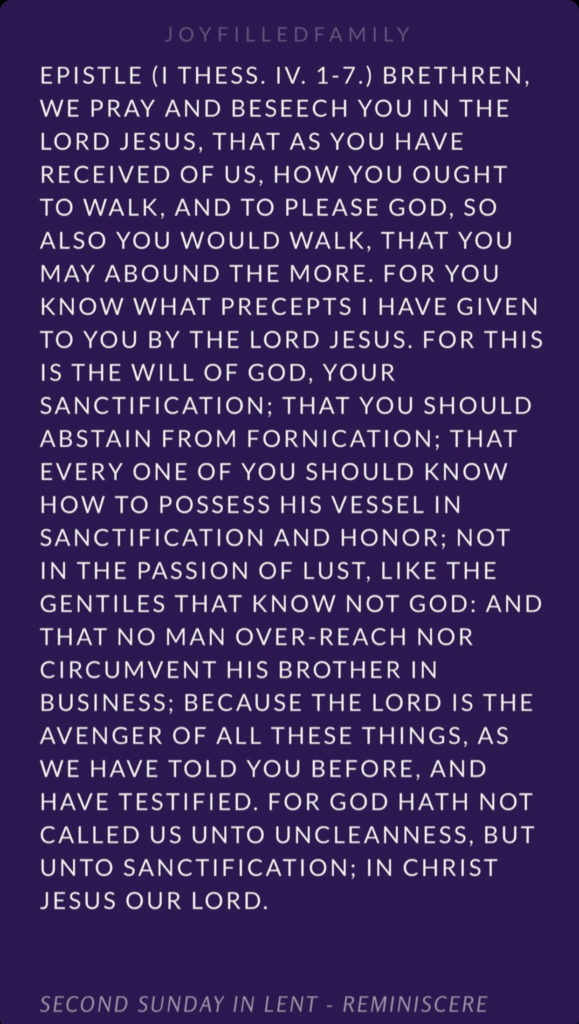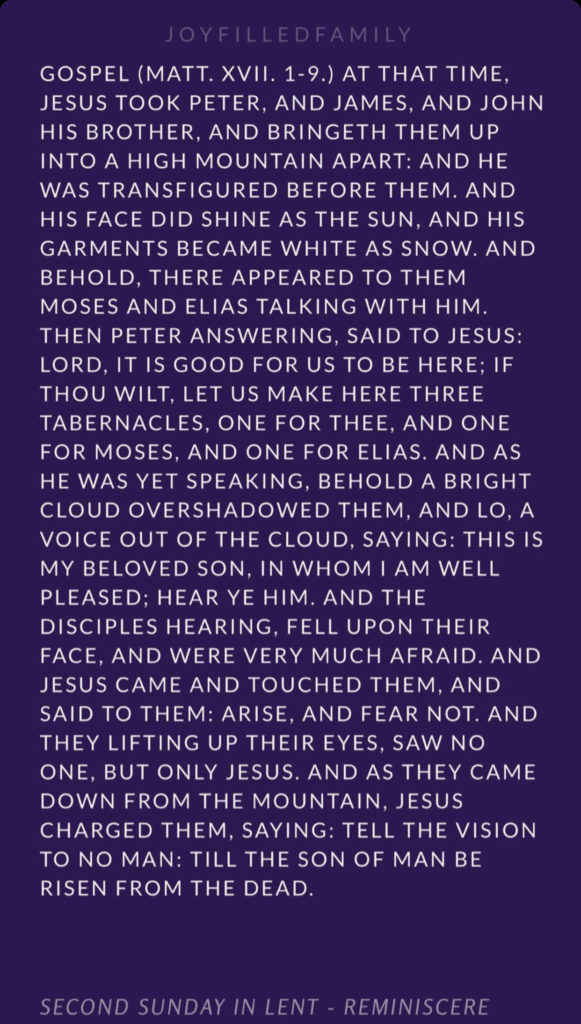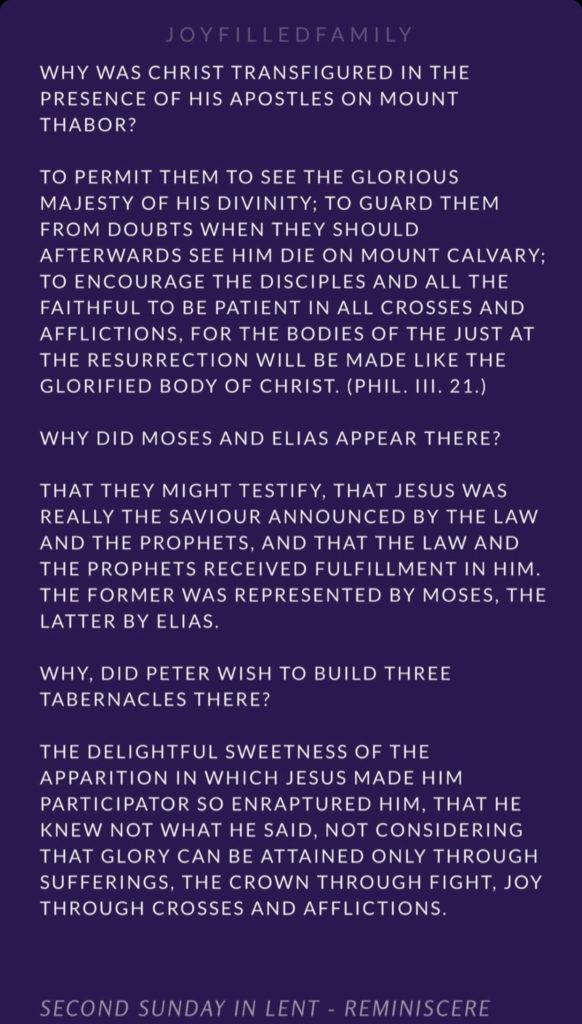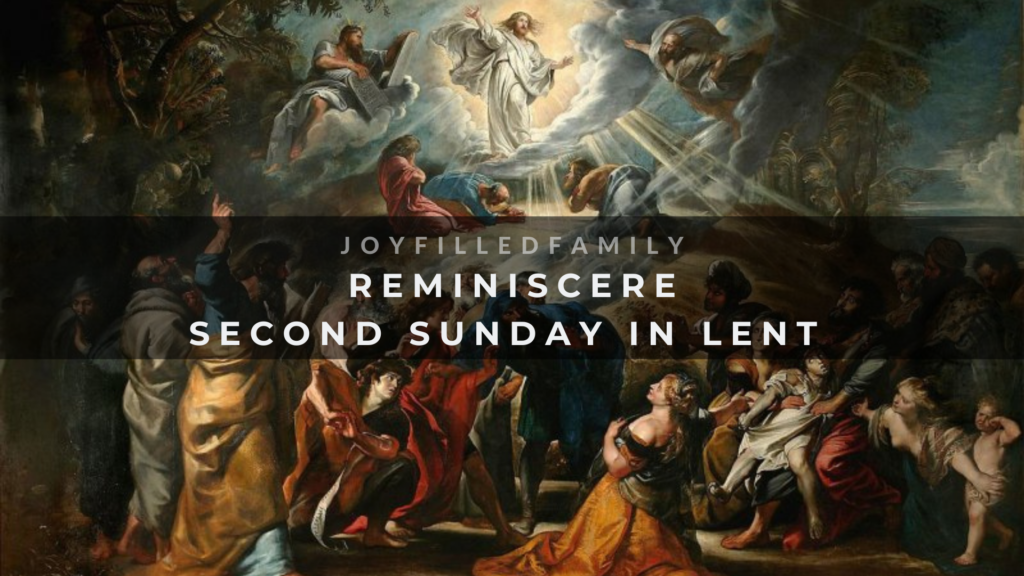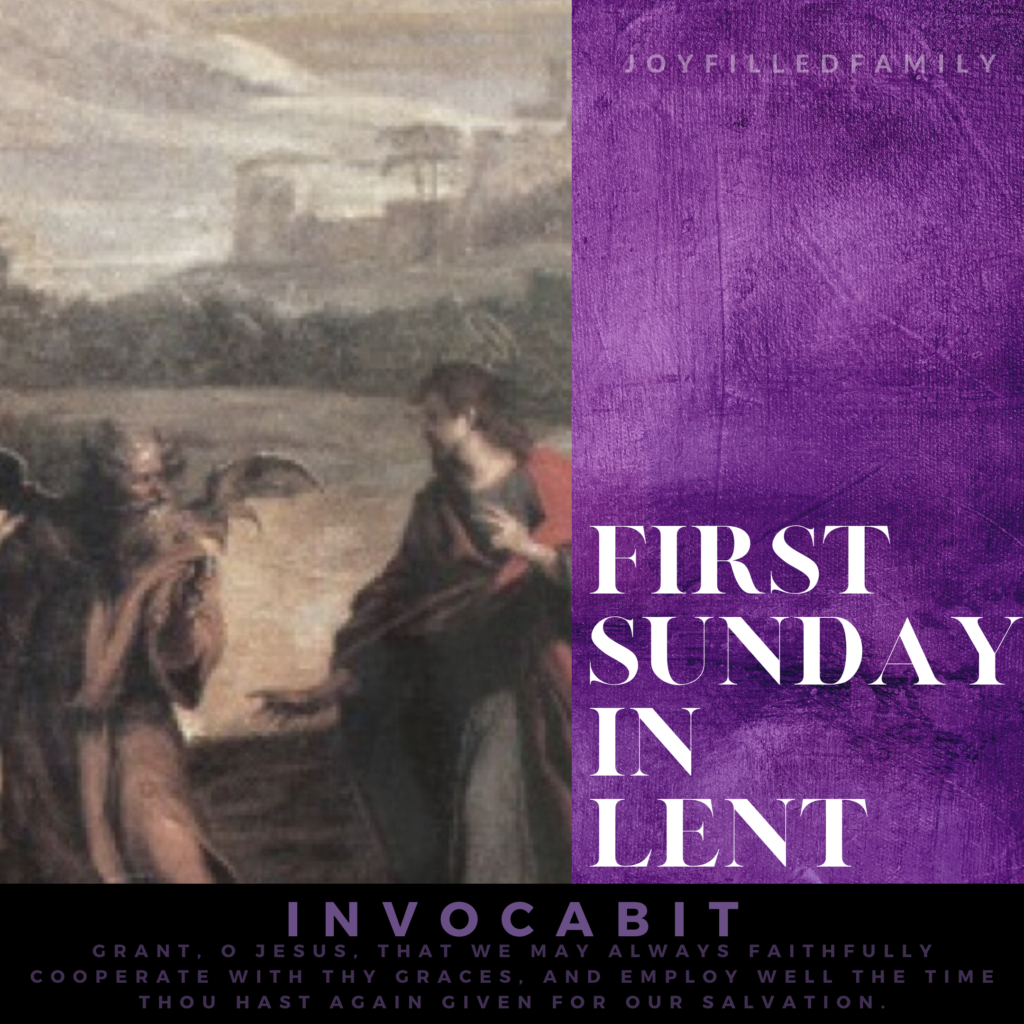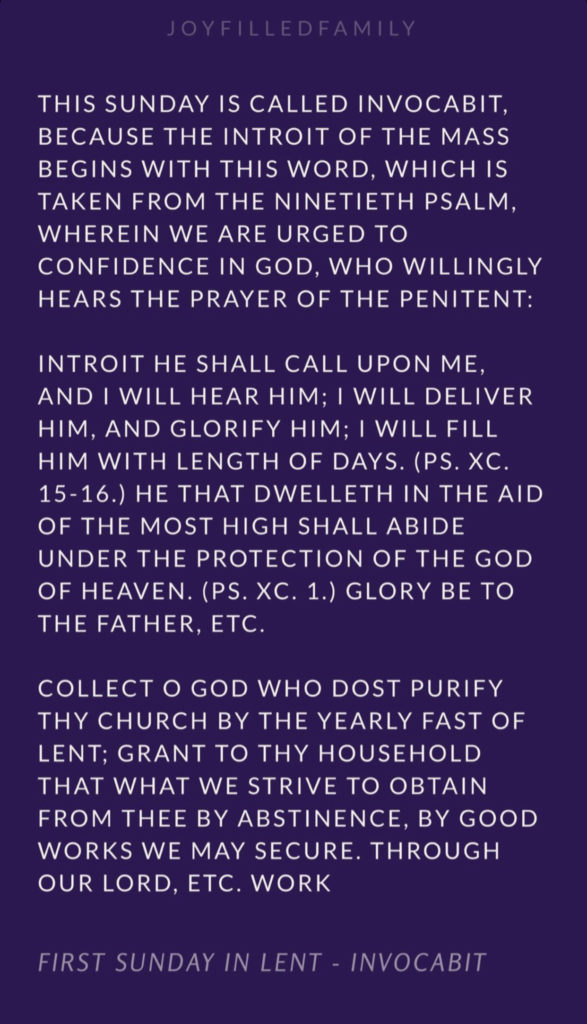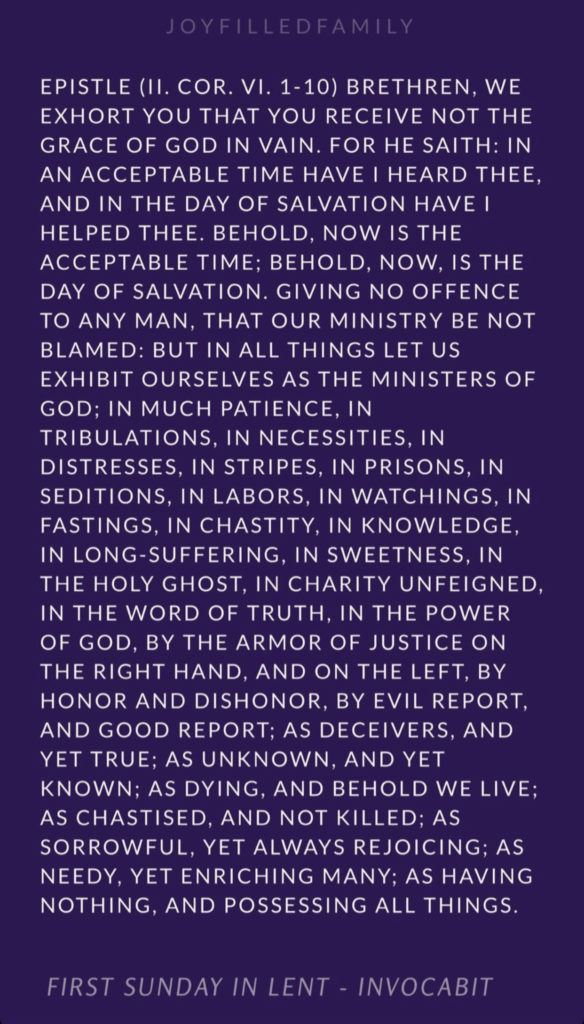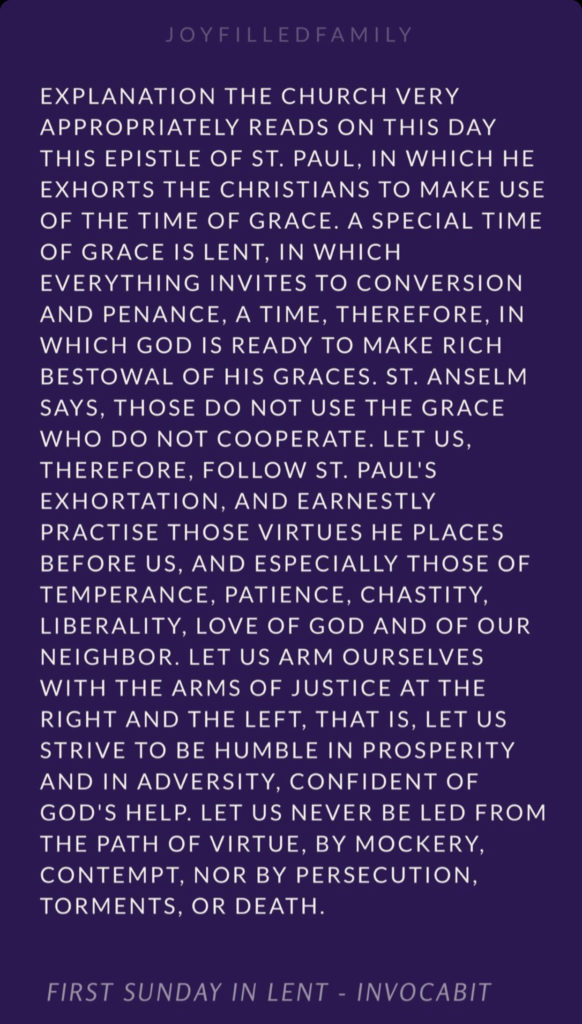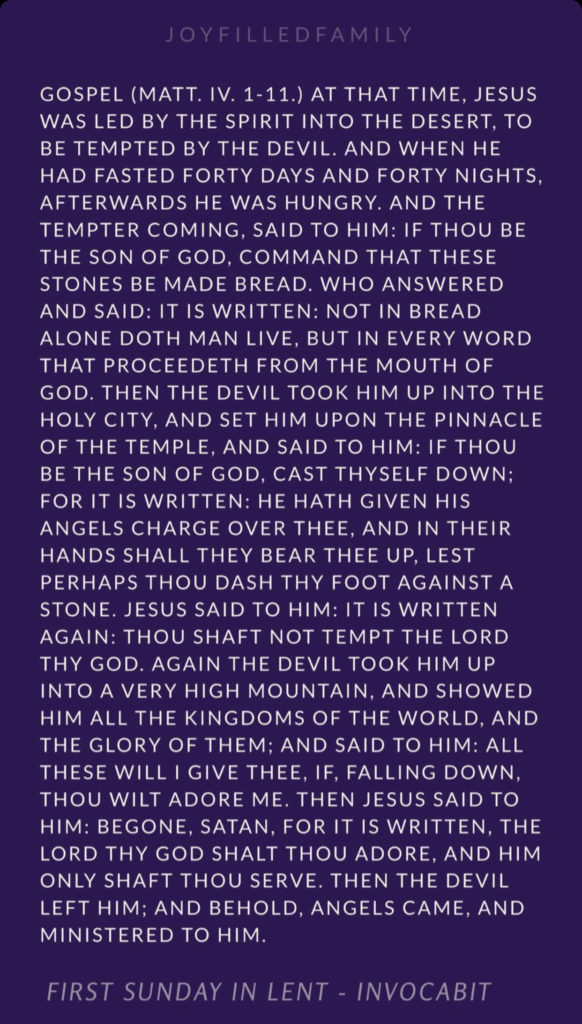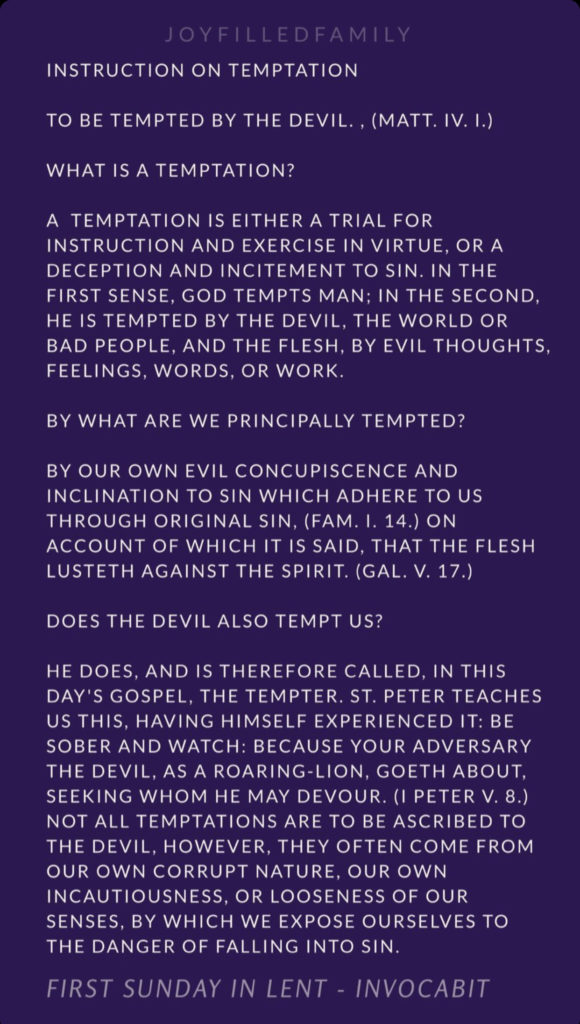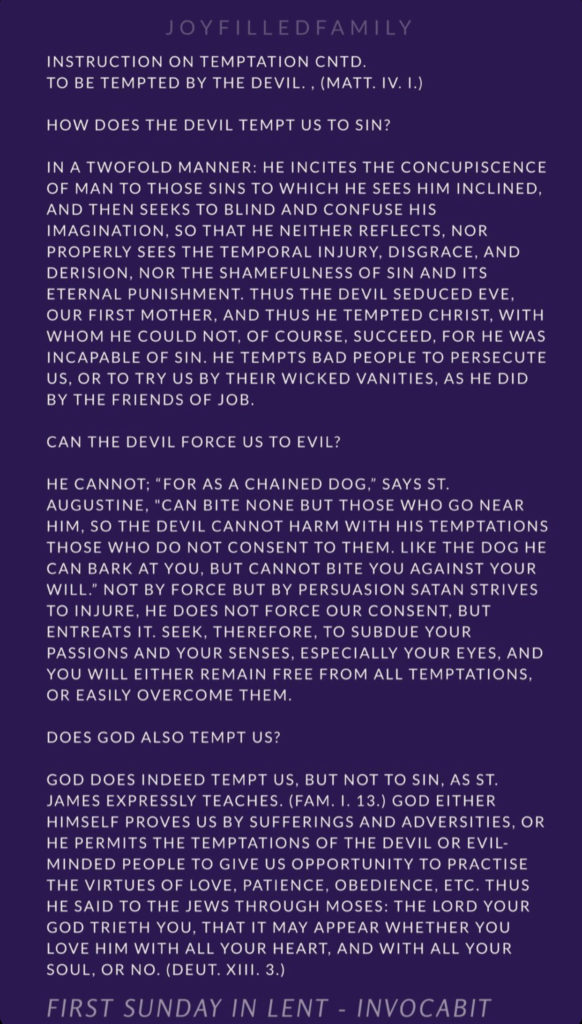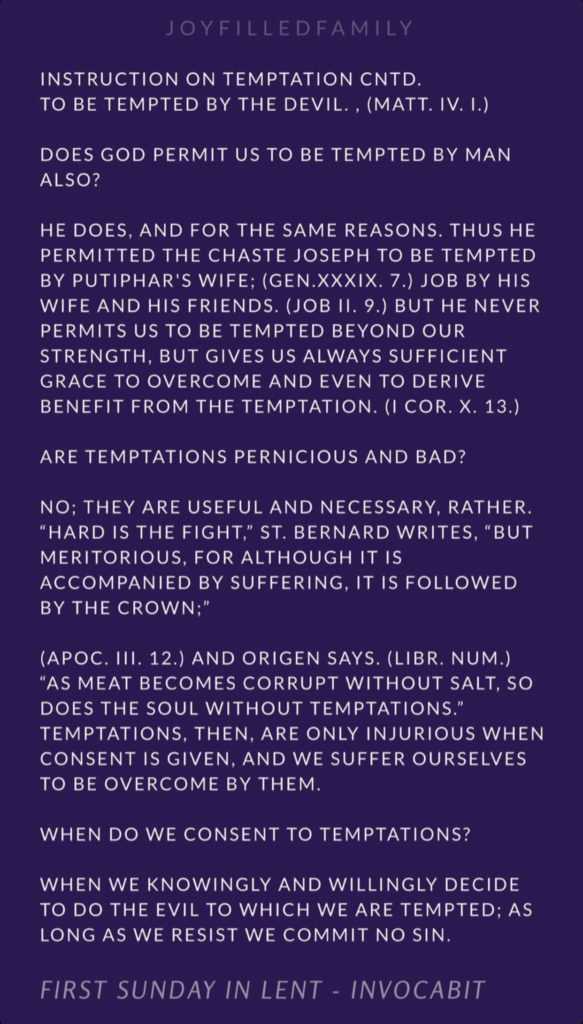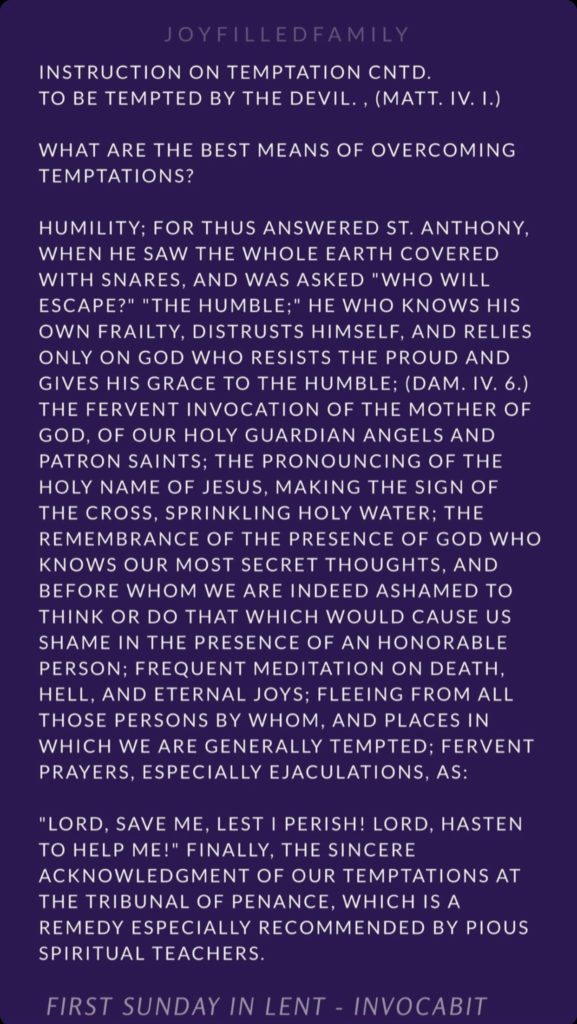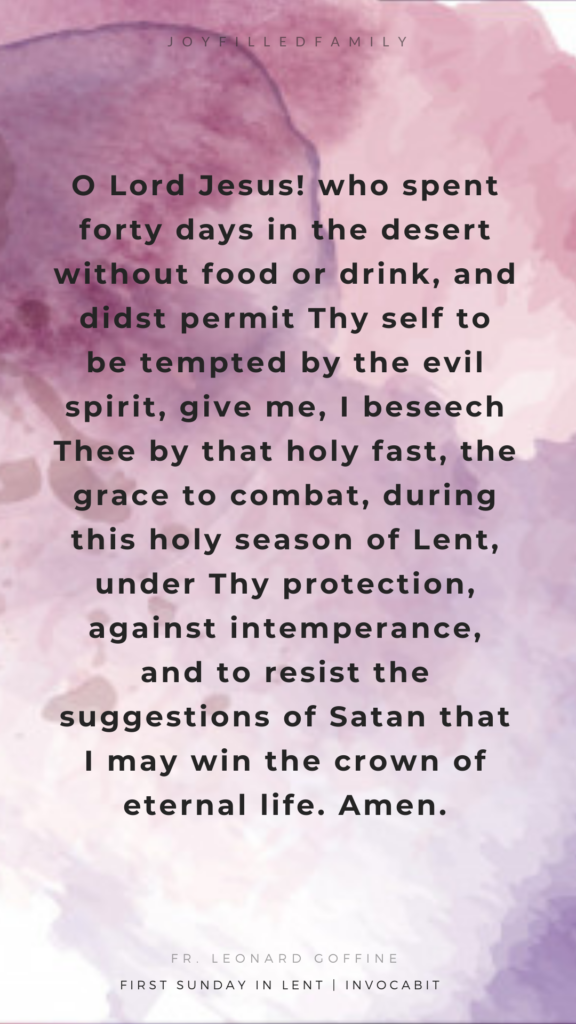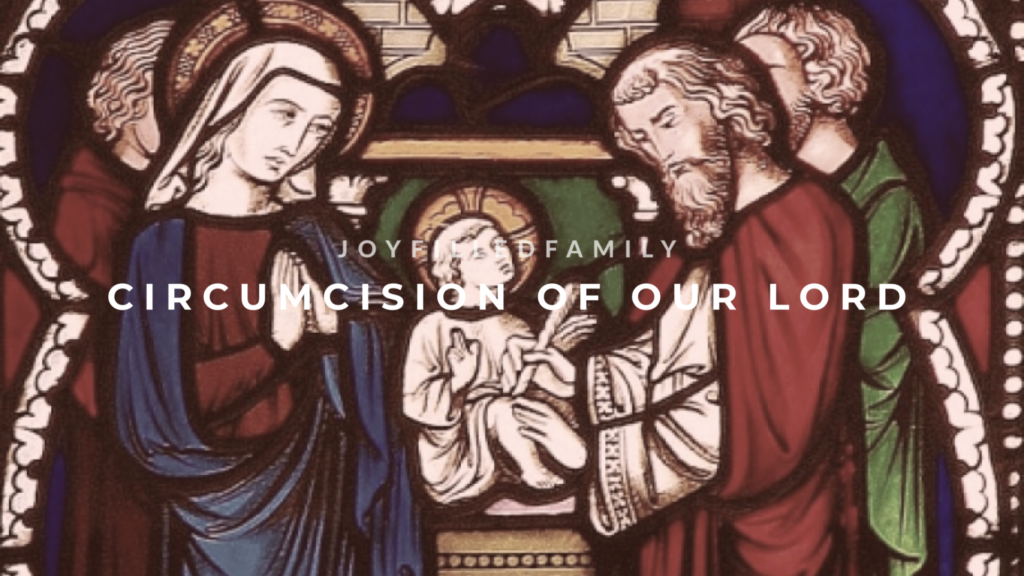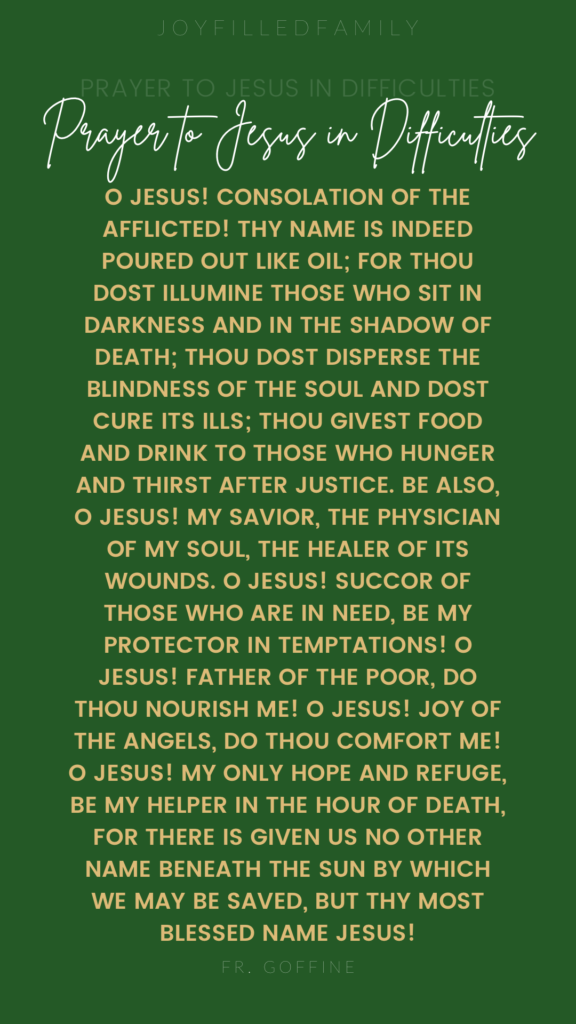Everything around us urges us to mourn. The images of the saints, the very crucifix on our altar, are veiled from our sight. The Church is oppressed with grief.
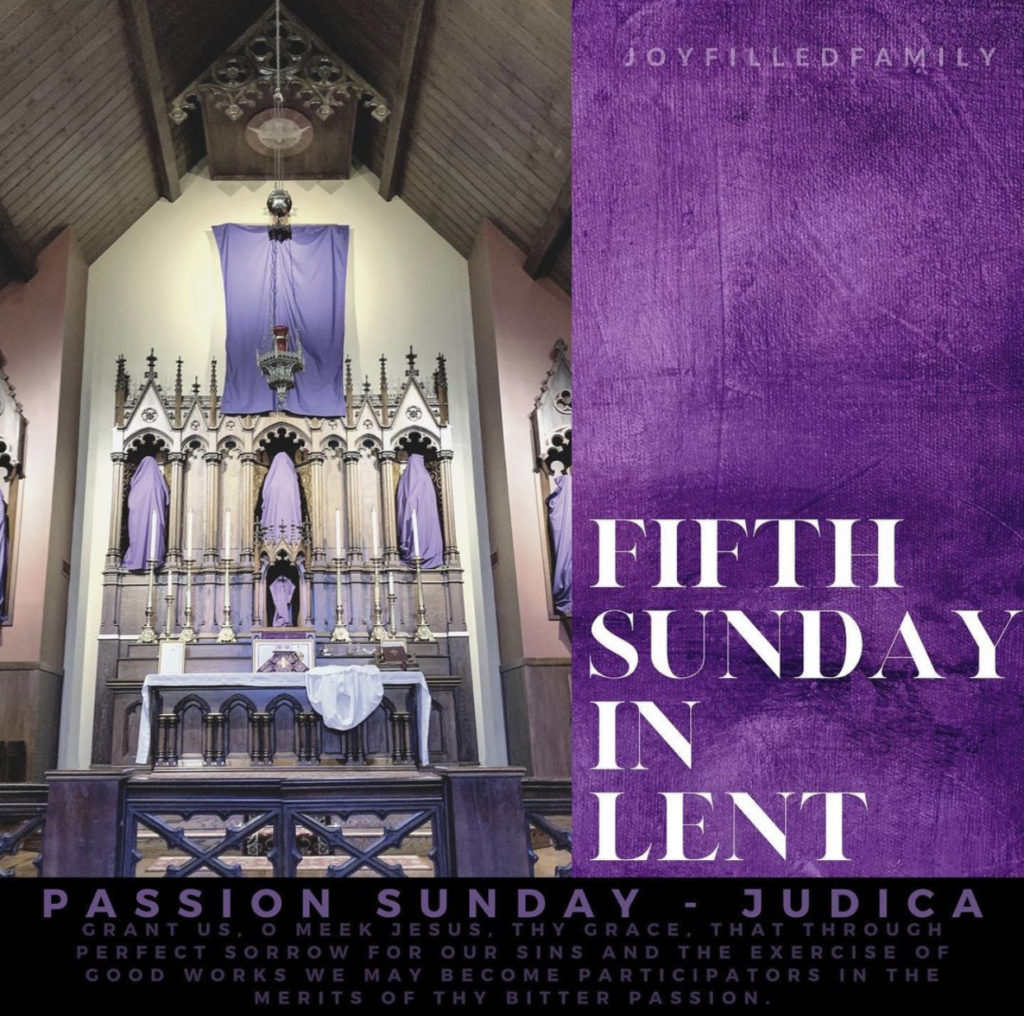
During the first four weeks of Lent, she compassionated her Jesus fasting in the desert; His coming sufferings and crucifixion and death are what now fill her with anguish. We read in to-day’s Gospel, that the Jews threaten to stone the Son of God as a blasphemer: but His hour is not yet come. He is obliged to flee and hide Himself. It is to express this deep humiliation, that the Church veils the cross. A God hiding Himself, that He may evade the anger of men – what a mystery! Is it weakness? Is it, that He fears death? No; we shall soon see Him going out to meet His enemies: but at present He hides Himself from them, because all that had been prophesied regarding Him has not been fulfilled. Besides, His death is not to be by stoning: He is to die upon a cross, the tree of malediction, which, from that time forward, is to be the tree of life. Let us humble ourselves, as we see the Creator of heaven and earth thus obliged to hide Himself from men, who are bent on His destruction! Let us go back, in thought, to the sad day of the first sin, when Adam and Eve bid themselves because a guilty conscience told them they were naked. Jesus has come to assure us of our being pardoned, and lo! He hides Himself, not because He is naked – He that is to the saints the garb of holiness and immortality – but because He made Himself weak, that He might make us strong. Our first parents sought to hide themselves from the sight of God; Jesus hides Himself from the eye of men. But it will not be thus for ever. The day will come when sinners, from whose anger He now flees, will pray to the mountains to fall on them and shield them from His gaze; but their prayer will not be granted, and they shall see the Son of Man coming in the clouds of heaven, with much power and majesty [St. Matt. xxiv. 30].
This Sunday is called Passion Sunday, because the Church begins, on this day, to make the sufferings of our Redeemer her chief thought. It is called also, Judica, from the first word of the Introit of the Mass; and again Neomania, that is, the Sunday of the new (or the Easter) moon, because it always falls after the new moon which regulates the feast of Easter.
-Dom Propser Gueranger
The following is instruction from Fr. Leonard Goffine, The Church’s Year.
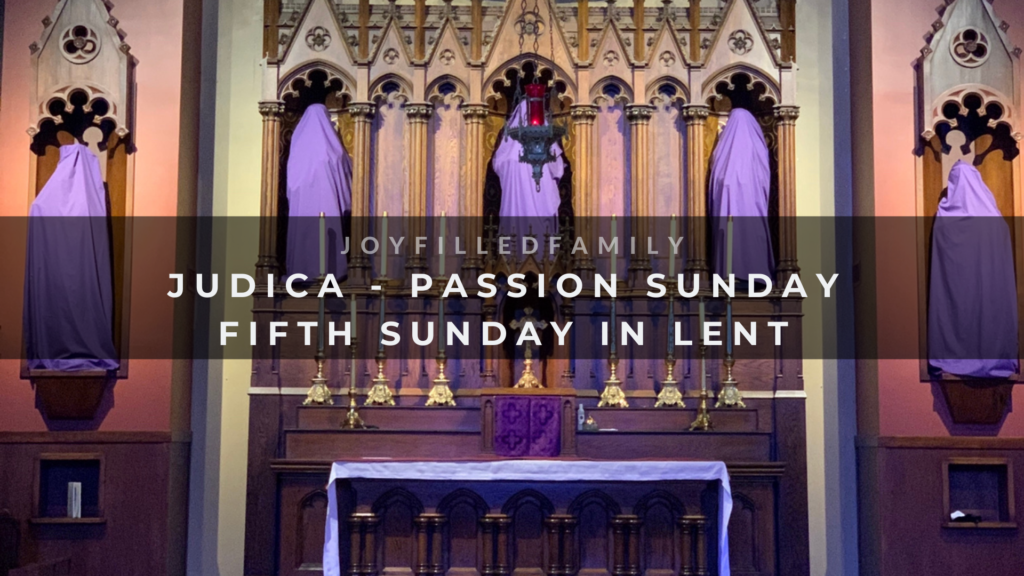
This Sunday, called Judica from the first word of the Introit, is also called Passion Sunday, because from this day the Church occupies herself exclusively with the contemplation of the passion and death of Christ. The pictures of Christ crucified are covered today in memory of his having hidden Himself from the Jews until His entrance into Jerusalem, no longer showing Himself in public. (John XI. 54.) In the Mass the Glory be to the Father, etc. is omitted, because in the person of Christ the Holy Trinity was dishonored. The psalm Judica is not said today, because on this day the high priests held council about our Lord, for which reason the Church in the name of the suffering Saviour uses these words at the Introit:
INTROIT Judge me, O God, and distinguish my cause from the nation that is not holy: deliver me from the unjust and deceitful man, for Thou art my God and my strength. Send forth thy light and thy truth: they have conducted me, and brought me unto thy holy hill, and into thy tabernacles. (Ps. XLII. 1. 3.)
COLLECT We beseech Thee, Almighty God, graciously to look upon Thy family; that by Thy bounty it may be governed in body, and by Thy protection be guarded in mind. Through, &c.
EPISTLE (Heb. IX. 11-15.) Brethren, Christ being come, a high-priest of the good things to come, by a greater and more perfect tabernacle, not made with hands, that is, not of this creation, neither by the blood of goats or of calves, but by his own blood, entered once into the Holies, having obtained eternal redemption. For if the blood of goats and of oxen, and the ashes of an heifer being sprinkled, sanctify such as are defiled, to the cleansing of the flesh, how much more shall the blood of Christ, who, by the Holy Ghost, offered himself without spot to God, cleanse our conscience from dead works, to serve the living God? And therefore he is the Mediator of the new testament; that by means of his death, for the redemption of those trangressions which were under the former testament; they that are called may receive the promise of eternal inheritance.
EXPLANATION St. Paul here teaches, that Christ as the true high-priest of the New Testament, through His precious blood on the altar of the cross, has indeed rendered perfect satisfaction for sins, but that the sinner must also do his own part, by cooperating with Christ to make himself less unworthy of participating in His passion and merits, and to appropriate to himself its fruits. This is done when he diligently and devoutly assists at the unbloody Sacrifice of the Mass, by which the fruits of the death on the cross are attributed to us; when, according to the will of the Church, he purifies his conscience by true contrition and confession; and when he seeks by trust in Christ’s merits to render some satisfaction for his sins through voluntary penance and faithful following of Christ.


ASPIRATION Grant us, O meek Jesus, Thy grace, that through perfect sorrow for our sins and the exercise of good works we may become participators in the merits of Thy bitter passion.
GOSPEL (John VIII. 46-59.) At that time, Jesus said to the multitudes of the Jews: Which of you shall convince me of sin? If I say the truth to you, why do you not believe me? He that is of God, heareth the words of God. Therefore you hear them not, because you are not of God. The Jews therefore answered, and said to him: Do not we say well, that thou art a Samaritan, and hast a devil? Jesus answered: I have not a devil; but I honor my Father, and you have dishonored me. But I seek not my own glory; there is one that seeketh and judgeth. Amen, amen, I say to you, if any man keep my word, he shall not see death for ever. The Jews therefore said: Now we know that thou hast a devil. Abraham is dead, and the prophets; and thou sayest: If any man keep my word, he shall not taste death for ever. Art thou greater than our Father Abraham, who is dead? and the prophets are dead. Whom dost thou make thyself? Jesus answered: If I glorify myself, my glory is nothing. It is my Father that glorifieth me, of whom you say that he is your God. And you have not known him; but I know him. And if I shall say that I know him not, I shall be like to you, a liar. But I do know him, and do keep his word. Abraham your father rejoiced that he might see my day: he saw it, and was glad. The Jews therefore said to him: Thou art not yet fifty years old, and hast thou seen Abraham? Jesus said to them: Amen, amen, I say to you, before Abraham was made, I am. They took up stones therefore to cast at him: but Jesus hid himself, and went out of the temple.
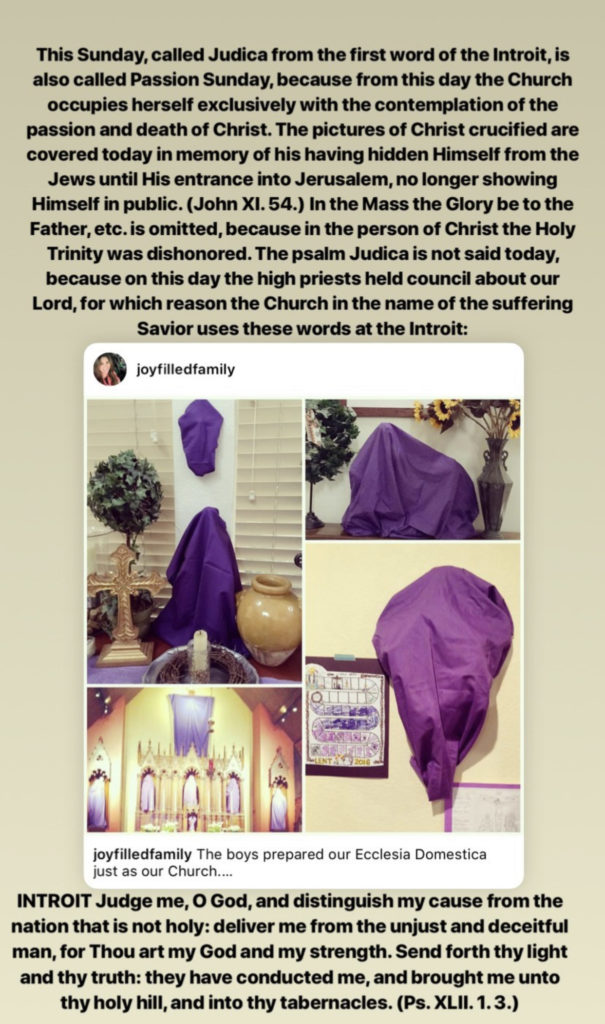
Why did Christ ask the Jews, which of them should convince Him of sin?
To show us that he who would teach and punish others, should strive to be irreproachable himself; and to prove that He, being free from sin, was more than mere man, and therefore, the Messiah, the Son of God, as He repeatedly told the Jews, especially in this day’s gospel, and substantiated by His great and numerous miracles.
Why did He say: He that is of God, heareth the words of God?
To prove that the Jews on account of their stubbornness and unbelief were not the children of God, but of the devil. “Therefore,” St. Gregory says, “let every one when he hears the word of God, ask himself, of whom he is. Eternal truth demands that we be desirous of the heavenly fatherland, that we tame the desires of the flesh, be indifferent to the praises of the world, covet not our neighbor’s goods, and give alms according to our means. Therefore examine yourself, and if you find in your heart this voice of God, then you will know that you are of God.”

CONSOLATION UNDER CALUMNY
When Christ told the Jews the truth, He received insults and calumny; they called Him a Samaritan, that is, an unbeliever, a heretic, one possessed of a devil. This was a terrible slander, and it must have pained Him exceedingly, but at the same time it is a great consolation to those who are innocently calumniated, when they consider that Christ Himself received nothing better. St. Augustine consoles such by saying: “O friend, what is there that can happen to you that your Saviour did not suffer before you? Is it slander? He heard it, when He was called a glutton, a drunkard, a heretic, and a rebel, a companion of sinners, one possessed of a devil; He even heard, when casting out devils, that He did so by Beelzebub, prince of devils.” (Matt. IX. 34.) He therefore comforts His apostles, saying, If they have called the good man of the house Beelzebub, how much more them of his household? (Matt, X. 25.) Are the pains bitter? There is no pain so bitter that He has not endured it; for what is more painful, and at the same time more ignominious, than the death of the cross? For think, says St. Paul, diligently upon him who endured such opposition from sinners against himself: that you be not wearied (by all contempt and calumny), fainting in your minds. (Heb. XII. 3.)
How and why did Christ defend Himself against those who slandered Him?
Only by denying with the greatest modesty the things with which they reproached Him, saying that He had not a devil, that He was not a Samaritan, because He honored His Father not in their manner, but in His own. In repelling this calumny while He left the rest unanswered, Christ removed all doubt in regard to His divine mission, thus vindicating the honor of God, and securing the salvation of man. Christ thus teaches us by His own conduct to defend ourselves only against those detractions and insults which endanger the honor of God and the salvation of man, and then to defend ourselves with all modesty; by no means however to do it, if they injure only our own good name, for we should leave the restoration of that to God, as exemplified by Christ, who knows better than we how to preserve and restore it.
[See the Instruction on the Epistle of the third Sunday after Epiphany.]
How had Abraham seen Christ’s day?
In spirit, that is, by divine revelation he foresaw the coming of Christ and rejoiced; also, he heard, by revelation from God, with the other just in Limbo, that Christ’s coming had taken place, and derived the greatest comfort from it.
Why did Christ conceal Himself from the Jews, instead of taking vengeance?
Because the time of His death had not come; because He would show His meekness and patience and teach us that we should avoid our enemies rather than resist them or take vengeance on them; Christ wished to instruct us to avoid passionate and quarrelsome people, for it is an honor for a man, to separate from quarrels: but all fools are meddling with reproaches. (Prov. XX. 3.)
PETITION When Thine enemies calumniated Thee, most meek Jesus, Thou didst answer them with tender words, and when they were about to stone Thee, Thou didst depart from them, whilst we can scarcely bear a hard word, and far from yielding to our neighbor, defend and avenge ourselves most passionately. Ah! pardon us our impatience, and grant us the grace to bear patiently the wrongs done us, and when necessary, answer with gentleness for Thy glory and the salvation of our neighbor.
